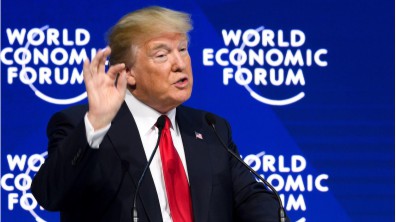 China’s economy and stock market are showing signs of softness amid an ongoing trade war with the U.S. On Wednesday, China’s Caixin Purchasing Managers’ Index – a private survey of activity among small- and medium-sized businesses – dropped 0.6 points to 49.4 in December, dropping below 50 for the first time since May 2017.
China’s economy and stock market are showing signs of softness amid an ongoing trade war with the U.S. On Wednesday, China’s Caixin Purchasing Managers’ Index – a private survey of activity among small- and medium-sized businesses – dropped 0.6 points to 49.4 in December, dropping below 50 for the first time since May 2017.
A reading below 50 indicates contraction. That follows disappointing results from the country’s Bureau of Statistics earlier this week, which also found that manufacturing activity shrank in December – for the first time in more than two years. China’s Purchasing Managers’ Index was 49.4 last month, which was the weakest level recorded since February 2016, according to Reuters. It was the result of a drop in new export orders.
Meanwhile, the major Chinese stock index suffered double-digit losses in 2018. The Shanghai Composite fell more than 24 percent for the year, its largest annual decline in a decade. During the third quarter, China’s gross domestic product (GDP) growth missed expectations, coming in at 6.5 percent.
The Trump administration has imposed tariffs on about $200 billion worth of Chinese imports. The president had threatened to raise the tariff rate to 25 percent, but during the G-20 summit in Buenos Aires last month Trump agreed to hold off on increasing tariffs for at least 90 days while negotiations continue. Over the weekend, leaders from both countries had positive things to say about the prospects for trade progress following a phone call on Saturday.
President Trump has remained positive that his tariff and trade policies will help strengthen the American economy. It won’t happen in a day or week but over time many top economists believe that these new rules of economic engagement will help American businesses prosper in a sustainable way.